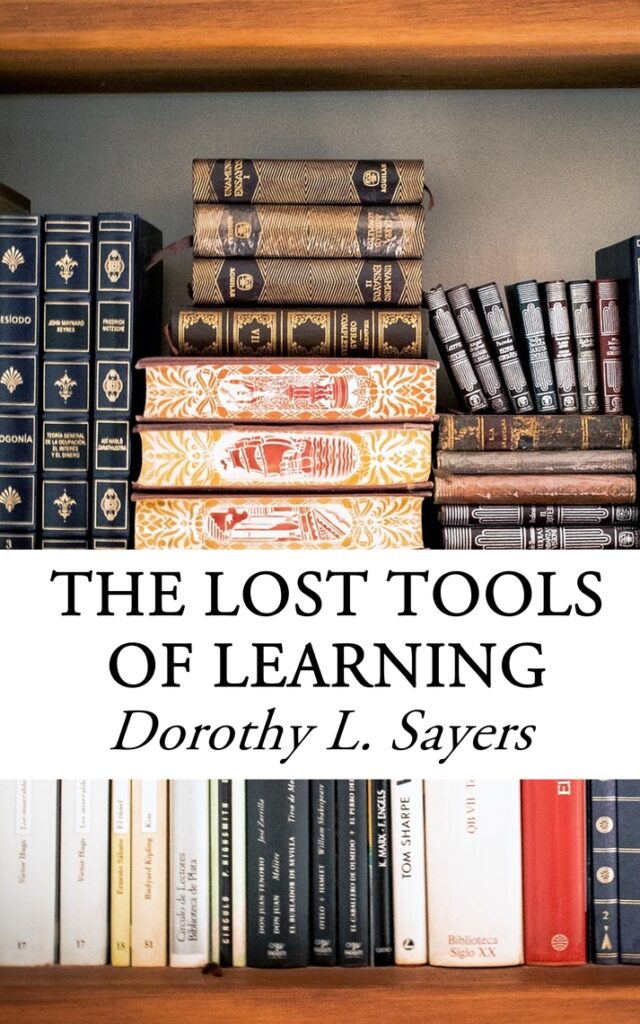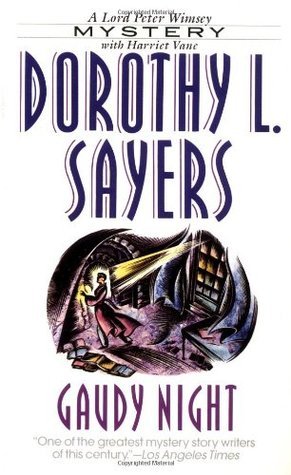Dorothy Sayers was never present at an Inklings meeting. She was never considered as a member of that weekly sharing of readings and thoughts. Yet she is often seen in conjunction with the Inklings because she graduated from Oxford herself and was friends with two of its leading members: Charles Williams and C. S. Lewis. Sayers knew Williams first, then initiated a correspondence with Lewis that grew over time and resulted in, first, a collegial relationship, and then a more personal friendship. Lewis, responding during the last year of his life about his connections with Sayers, gave this summary:
Dorothy Sayers, so far as I know, was not even acquainted with any of us except Charles Williams and me. In my case, the initiative came from her. She was the first person of importance who ever wrote me a fan-letter. I liked her, originally, because she liked me; later, for the extraordinary zest and edge of her conversation—as I like a high wind.
What was it about Sayers’s writing that appealed to Lewis? Why did he find himself drawn to a number of her works?
Although I have been an avid reader of Lewis my entire life, my only interaction for a long time with anything Sayers wrote was her essay, “The Lost Tools of Learning,” which I read sometime in the early 1990s as I was delving into the movement among homeschoolers to establish a more classical education model. Her explication of the medieval emphasis on the grammar, logic, and rhetoric connected with all subject matter was enlightening. But there my reading of Sayers stopped until my interest in Lewis led to writing a book on him and awakened a desire to seek out more writers of his ilk. Tolkien I had already ingested, so I first turned to the novels of Charles Williams. Then when the Wade Center’s blog, Off the Shelf, began a short series on one of Sayers’s novels, The Nine Tailors, I was intrigued enough to order the book in an electronic version (my bookcases are already on the verge of succumbing to the inevitable overflow quite common for an academic) to see why it was considered so significant.
I found the novel, which centered on her favorite aristocratic and amateur detective, Lord Peter Wimsey, to be intelligent, suffused with an understated humor, and somewhat different from what I had always considered to be the classic detective story. At the end of the book, there was a teaser for the next one in the series, Gaudy Night, and the teaser worked—I purchased that one as well. This novel introduced me to the woman who would eventually become Wimsey’s wife, Harriet Vane. Again, I was impressed not only with the writing but with the atmosphere she created in her fictional Oxford College for women. Once introduced to the Vane character, I had to find out where she first appeared in the series and why she had been charged with murder, so that led to Strong Poison for the backstory. In all, I read five of the Wimsey novels and came away impressed with Sayers’s storytelling with a solid emphasis on character development.
As the idea of a paper on Lewis and Sayers began to percolate, I bought The Man Born to Be King and saw immediately in the introduction concepts that I had also seen in Lewis. I then turned to The Mind of the Maker, thinking I only had to skim it to get the overall feeling for why Lewis might like it, but instead found myself engrossed in each chapter, and using each chapter as a portion of my morning devotions. Finally, I read every letter Lewis wrote to Sayers.
That paper idea did come to fruition as I presented it at Taylor University at a Lewis and Inklings conference back in 2018. Since then, I’ve become even more interested in Sayers. As I’ve hinted in a previous post, I’m now researching both Lewis and Sayers with respect to their views on education and trusting that the Lord, who does give His people the desire of their hearts, will show me the way in which that, as well, may come to fruition. My task is simply to follow His lead.



